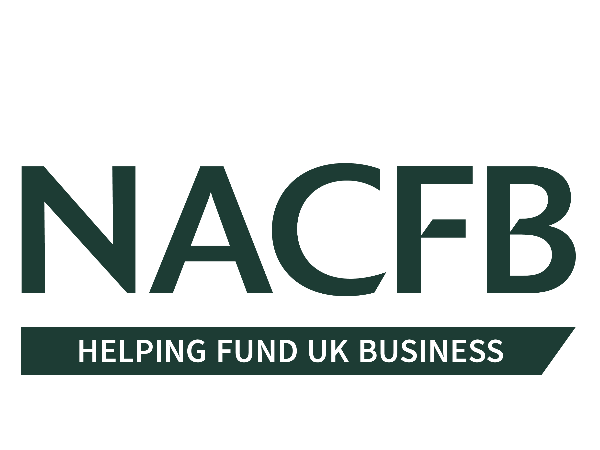Regulated Bridging Finance Scotland & UK
Fast-Track Property Purchase with Bridging Loans
Buying a new property before your current home sells is one of the most stressful situations in property transactions. You’ve found your dream home, but your sale is delayed. Your purchase completes in weeks, but your sale won’t complete for months.
That’s where regulated bridging finance comes in.
At Capital 8 Finance, we specialise in arranging regulated bridging loans across Scotland, England, and Wales. Whether you’re caught in a broken property chain or need to move quickly to secure your new home, we can help you access the funds you need—fast.
Regulated bridging finance is a legitimate, FCA-regulated solution for homeowners who need short-term funding to bridge a gap in their finances while they wait for their current property to sell.

What is Regulated Bridging Finance?
Regulated bridging finance is a short-term loan secured against your owner-occupied residential property. It “bridges” the gap between purchasing a new property and receiving funds from the sale of your existing property.
Key characteristics:
- Owner-occupied only:The property must be (or will be) your primary residence
- Short-term:Maximum 12 months (cannot be extended)
- Secured against property:The lender takes a legal charge on your new property
- Fast funding:Can complete in 2-4 weeks (sometimes faster)
- FCA regulated:Authorised and regulated by the Financial Conduct Authority
- Maximum LTV:75% of property value
- Transparent pricing:All costs clearly disclosed upfront
How it works:
- You identify a property you want to purchase (your new home)
- You provide a 25% deposit from savings or other sources
- You apply for a bridging loan with me to cover the remaining 75%
- The lender completes a valuation and underwriting
- The loan completes and funds are released
- You sell your existing property
- Sale proceeds repay the bridging loan (plus interest and fees)
When Do You Need Regulated Bridging Finance?
1. Broken Property Chain
The problem: Your purchase is ready to complete, but the sale of your current property is delayed.
The impact: You lose the property you want to buy, or face penalties for not completing on time.
Bridging solution: Use a bridging loan secured against your new property to complete the purchase now. Repay the loan when your current property sale completes.
Example:
- New property purchase: £300,000
- Your deposit (25%): £75,000
- Bridging loan needed (75% LTV): £225,000
- Current property value: £280,000
- Outstanding mortgage: £150,000
- Expected sale proceeds: £130,000
- Timeline: 8 weeks until your current property sale completes
Exit strategy: Use £130,000 from sales proceeds + a £95,000 residential mortgage to repay £225,000 bridging loan
2. Buying Before Selling
The problem: You want to move immediately but haven’t sold your current home yet.
The impact: You miss out on the property you want, or you’re forced to sell quickly at a lower price.
Bridging solution: Use a bridging loan secured against your new property to complete the purchase immediately. Repay the loan when your current property sells.
Example:
- New property purchase: £400,000
- Your deposit (25%): £100,000
- Bridging loan needed (75% LTV): £300,000
- Current property value: £350,000
- Outstanding mortgage: £0
- Expected sale proceeds: £350,000
- Timeline: 12 weeks until your current property sale completes
Exit strategy: Use £300,000 from the sales proceeds to repay £300,000 bridging loan
3. Time-Sensitive Purchase
The problem: You need to complete a purchase quickly (relocation for work, family circumstances, time-limited opportunity).
The impact: You miss the opportunity or lose the property to another buyer.
Bridging solution: Use bridging finance secured against your new property to complete immediately. Repay from sale proceeds once your current property sells.
Example:
- New property purchase: £250,000
- Your deposit (25%): £62,500
- Bridging loan needed (75% LTV): £187,500
- Current property value: £220,000
- Outstanding mortgage: £120,000
- Expected sale proceeds: £100,000
- Completion needed: 3 weeks
- Timeline: Complete in 2 weeks, repay from sale proceeds within 6 months
Exit strategy: Use £100,000 from sale proceeds + a £87,500 residential mortgage to repay £187,500 bridging loan
Important: Regulated vs. Unregulated Bridging
There are two types of bridging finance—regulated and unregulated. They are fundamentally different.
|
Feature
|
Regulated Bridging
|
Unregulated Bridging
|
|
Regulation
|
FCA regulated |
Not FCA regulated |
|
Property type
|
Owner-occupied residential only |
Investment/commercial properties |
|
Maximum term
|
12 months (cannot be extended) |
1-36 months (varies by lender) |
|
Maximum LTV
|
75% |
70-75% (up to 100% with addiotnal security) |
|
Interest rates
|
0.5-1.5% per month (6-18% p.a.) |
1-3% per month (12-36% p.a.) |
|
Consumer protection
|
Full FCA protections |
Limited protections |
|
Best for
|
Homeowners in property chains |
Property investors, developers |
How Much Can I Borrow?
Regulated bridging loan amounts depend on:
- Property value(the new property being purchased)
- Loan-to-Value (LTV)– Maximum 75% of the new property value
- Your deposit– Typically 25% of the purchase price
- Exit strategy– How you’ll repay the loan (sale proceeds from your current property)
How LTV is Calculated:
The bridging loan is secured against your new property:
Maximum bridging loan = 75% × New property value
Your deposit required = 25% × New property value
Example Calculation:
New property purchase: £300,000
Your deposit (25%): £75,000
Maximum bridging loan (75%): £225,000
Minimum & Maximum Loan Amounts:
- Minimum loan: £50,000 (some lenders accept £25,000)
- Maximum loan: £500,000+ (depending on lender)
- Most common range: £100,000-£300,000
Bridging Finance Costs & Fees
Interest Rates
Factors affecting your rate:
- Loan-to-Value (LTV)– Higher LTV = higher rate
- Exit strategy– Confirmed sale = lower rate
- Loan amount– Larger loans may get better rates
- Credit profile– Excellent credit = lower rate
- Typical range:5-1.5% per month (6-18% per annum)
Arrangement Fees
Typical range: 1-3% of loan amount
Example: £200,000 loan × 2% = £4,000 arrangement fee
Other Costs
|
Cost
|
Typical Amount
|
|
Valuation |
£300-£1,000 |
|
Legal fees (lender’s solicitor) |
£500-£1,500 |
|
Survey (optional but recommended) |
£400-£1,500 |
|
Broker fee (my fee) |
1% of loan amount |
|
Exit fee (redemption, discharge) |
1% of loan amount (not all lenders charge a exit fee) |
Total Cost Example
Scenario: £200,000 bridging loan for 3 months at 1% per month
| Cost | Amount |
| Interest (1% per month × 3 months) | £6,000 |
| Arrangement fee (2%) | £4,000 |
| Valuation | £500 |
| Legal fees | £1,000 |
| Broker fee (1%) | £2,000 |
| Exit fee | £2,000 |
| Total cost | £15,500 |
| Effective cost | 7.75% of loan amount |
Bridging Finance Timeline
How Fast Can You Get Funded?
Typical timeline for regulated bridging:
|
Stage
|
Timeline
|
|
Initial consultation & application |
Day 1 |
|
Lender review & valuation arranged |
Days 1-3 |
|
Property valuation completed |
Days 3-7 |
|
Underwriting & approval |
Days 7-10 |
|
Legal documentation prepared |
Days 10-14 |
|
Completion & funds released |
Days 14-21 |
|
Total time to funding
|
2-3 weeks
|
Fastest cases: 7-10 days (straightforward residential purchases with confirmed sale)
Slower cases: 4-6 weeks (if additional information or clarification is needed)
Important: 12-Month Maximum Term
Your regulated bridging loan must be repaid within 12 months. This term cannot be extended. Your exit strategy must show how you’ll repay within this timeframe—typically through the sale of your current property.
Regulated Bridging Finance Process
Step 1: Initial Consultation
Contact me and we’ll discuss:
- Your new property purchase (address, price, completion date)
- Your deposit available (typically 25% of purchase price)
- Your current property (value, outstanding mortgage, expected sale timeline)
- Your exit strategy (when you expect to sell and repay the loan)
- Your credit profile and financial situation
Outcome: I’ll confirm if regulated bridging finance is suitable and provide an indicative quote.
Step 2: Formal Application
Once you’re ready to proceed, I’ll arrange a formal application with:
- Your personal details and financial information
- Property details (new property being purchased and current property)
- Exit strategy confirmation
- Proof of funds for 25% deposit
Documents needed:
- ID and proof of address
- Last 3 months’ bank statements
- Last 2-3 years’ tax returns (if self-employed)
- Mortgage redemption statement (current property)
- Purchase agreement or estate agent valuation (new property)
- Proof of deposit funds
Step 3: Valuation & Underwriting
The lender will:
- Arrange a valuation of the new property being purchased
- Review your application and financial profile
- Assess your exit strategy (expected sale timeline of current property)
- Confirm the loan amount and terms
Timeline: 7-10 days
Step 4: Mortgage Offer & Legal Documentation
Once approved, the lender will:
- Issue a formal mortgage offer
- Instruct their solicitor to prepare legal documentation
- Confirm the completion date and funds transfer
Timeline: 3-7 days
Step 5: Completion & Funds Release
- Your solicitor and the lender’s solicitor exchange documents
- Funds are transferred to your solicitor’s client account
- Your solicitor completes your property purchase
- Bridging loan is registered as a legal charge on your new property
Timeline: 1-3 days
Regulated Bridging Finance FAQs
Can I get bridging finance if my sale is delayed?
Yes, that’s the primary use of regulated bridging finance. If your sale is taking longer than expected, bridging finance can help you complete your purchase on time. You’ll repay the loan when your sale completes.
What if my sale falls through?
This is a key risk. If your sale falls through, you’ll need an alternative exit strategy (refinance to a residential mortgage, additional funds from savings, sell another asset). Discuss this with me before applying—lenders need to know your backup plan.
How long can I keep a bridging loan?
Regulated bridging loans are designed for a maximum of 12 months. This term cannot be extended. Your exit strategy must show how you’ll repay within 12 months, typically through the sale of your current property.
Can I repay the bridging loan early?
Yes, most bridging loans allow early repayment without penalty. If your sale completes early, you can repay the loan and save on interest.
What’s the difference between first charge and second charge bridging?
- First charge:The bridging lender has first legal claim on the property (most common for regulated bridging)
- Second charge:Another lender has first charge (e.g., your existing mortgage), and the bridging lender has second charge (higher interest rates, more restrictive)
Most residential regulated bridging is first charge on the new property being purchased.
Can I get bridging finance with bad credit?
Possibly, but it depends on the severity and your exit strategy. If you have a strong exit strategy (e.g., confirmed sale with solicitors instructed), some lenders will accept adverse credit. Interest rates may be higher. Speak to me about your specific situation.
What properties can I use for regulated bridging?
Regulated bridging is for owner-occupied residential properties only—properties that are (or will be) your primary residence. This includes detached houses, semi-detached houses, terraced houses, flats, and bungalows.
Do I need a 25% deposit?
Yes, typically regulated bridging lenders require a 25% deposit, with the bridging loan covering the remaining 75% of the purchase price.
Why Choose Capital 8 Finance for Bridging Finance?
Specialist Bridging Broker
I specialise in regulated bridging finance for homeowners caught in property chains or needing to move quickly. I understand the stress of delayed sales and time-sensitive purchases, and I’ll find you the right solution fast. We can also help you with refinancing the bridging loan as well.
Whole-of-Market Access
I have access to specialist regulated bridging lenders including:
- Together Money
- United Trust Bank
- LendInvest
- Masthaven
- Precise
- West One
- MT Finance
- Octopus Capital
- Streambank
- Affirmative Finance
- Glenhawk
- Bridging Finance Solutions
- Alternative Bridging Corporation
This is only a selection of lenders available to me.
Fast Turnaround
- Applications processed within 24-48 hours
- Valuations arranged immediately
- Funding typically within 2-3 weeks
- Emergency funding available for time-sensitive purchases
Transparent Pricing
- Broker fee:1% of loan amount (e.g., £2,000 on a £200,000 loan)
- Payable:On completion only (no upfront fees)
All other costs (interest, arrangement fees, legal fees, valuation) are clearly explained upfront
Expert Guidance
I’ll help you:
- Assess whether regulated bridging finance is right for you
- Understand your exit strategy and 12-month repayment timeline
- Navigate the application process
- Manage your bridging loan until completion
Get Expert Bridging Finance Advice
Whether you’re caught in a broken chain or need to move quickly, we can help you access regulated bridging finance quickly and affordably.
Capital 8 Finance – Fast-track your property purchase with regulated bridging finance.
Contact us for a free, no-obligation consultation to discuss your bridging finance needs.


